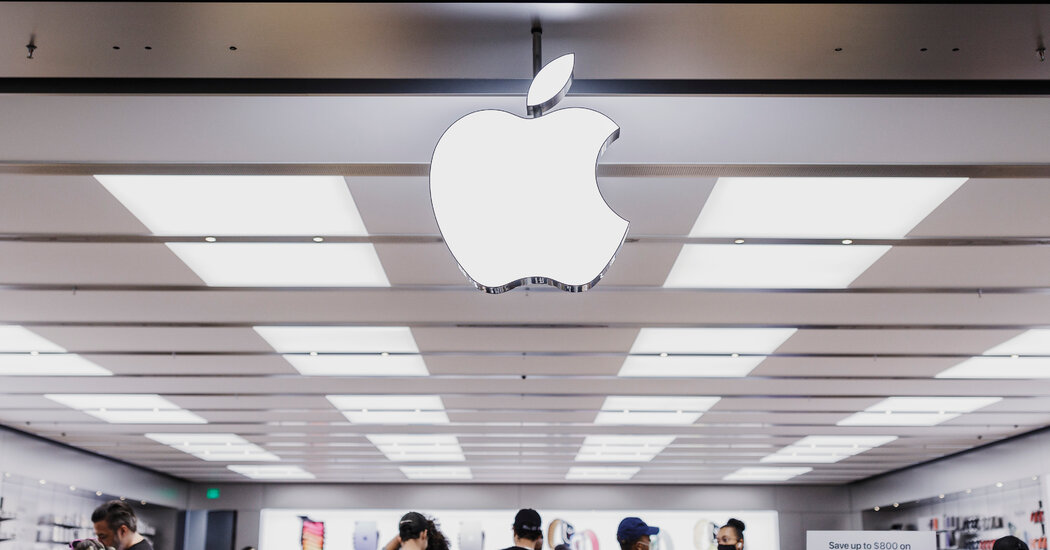
Apple on Thursday provided more evidence for optimists who believe that the worst of the tech industry’s slump may be over while reminding investors that there are still plenty of reasons for concern.
Although the company said that its revenue shrank 3 percent in its most recent quarter compared to the same period a year ago, the $94.8 billion total well outpaced investor expectations of $92.9 billion.
It was something of a rebound from the previous quarter, when Apple revenue and profit fell more substantially because of economic challenges and a Covid-19 outbreak in China that forced the company’s largest iPhone factory to close temporarily.
Apple reported a profit of $24.1 billion, down 3 percent from the same period a year earlier but above the $22.6 billion expected by Wall Street. The company’s sales in its second fiscal quarter were driven by record revenue for its services division and strong demand for iPhones, its flagship product.
“Apple’s results suggest to us that the company is navigating a challenging macroeconomic environment well,” said Tom Forte, an analyst with D.A. Davidson. Still, he said, Big Tech’s collective financial results served as a reminder that the economy is not yet out of the woods.
Apple made $51.3 billion from iPhone sales, up 1.5 percent from a year ago. Demand for iPhones and other products in China was down slightly from a year earlier, but revenue of $17.8 billion outpaced investor expectations as China continued its rebound from long pandemic lockdowns. Emerging markets like South Asia, India, Latin America and the Middle East powered iPhone demand, Luca Maestri, Apple’s chief financial officer, said on a call with investors.
Tim Cook, Apple’s chief executive, said on the call that the company’s supply of iPhones had recovered after various issues, many related to the pandemic.
“If you step back and look at how we performed over the last three years on supply chain, despite this parade of horribles, if you will, between the pandemic and the chip shortages and macroeconomic factors, the supply chain has been incredibly resilient,” he said.
Customers’ interest in Apple products other than the iPhone slumped in the quarter. Revenue from iPads fell nearly 13 percent and Mac revenue dropped 31 percent. Mr. Cook said the slowdowns came from economic challenges and difficult comparisons with a high-demand quarter last year.
Still, Apple’s services division, which includes subscriptions to Apple Fitness+ and Apple Music, as well as sales from its App Store, had nearly $21 billion in sales, a slight increase from a year ago that buoyed the company overall. Revenue from the App Store, Apple Music, iCloud and Apple’s payment services surged, in particular, while digital advertising and mobile gaming struggled, the company said on the call.
Apple also said it had authorized a $90 billion stock buyback, helping to drive the price of the company’s shares up more than 1 percent in after-hours trading on Thursday.
The company has not conducted mass layoffs like other technology companies, because it didn’t hire as aggressively in the early days of the pandemic. Apple has taken a hard line in its return-to-office policies, requiring most employees to work in the office three days a week.